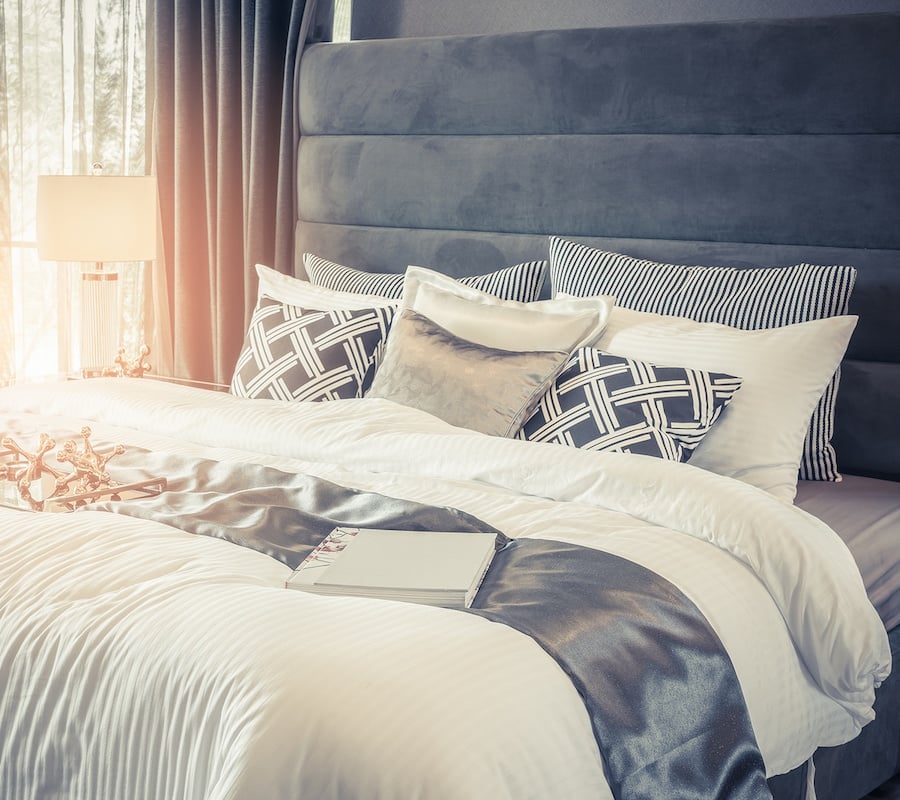Every morning, millions of people start their day by meticulously making their bed. Neatly tucked sheets and perfectly aligned pillows are often a source of pride and a symbol of productivity. You've probably heard the advice that "making your bed sets the tone for the day." But what if this beloved ritual comes with a surprising downside? Could making your bed right away actually be bad for your health?
It turns out science has something to say about this. While making your bed is far from harmful by itself, the timing and approach matter more than you might think. Let’s dig deeper into the surprising research and practical steps to keep your bed (and health) in top condition.
Does Making Your Bed Cause Health Problems? Here's What Science Says
The idea that making your bed could have health implications seemed far-fetched until a study from Kingston University in 2005 revealed something intriguing. Researchers discovered that leaving your bed unmade for a while could help reduce the presence of dust mites. Why? Dust mites thrive in warm, humid environments, and a freshly made bed seals in all the moisture and warmth from your sleep, creating an ideal habitat for these microscopic critters.
By contrast, an unmade bed allows air to circulate around your sheets and mattress, helping them dry out and making it more difficult for dust mites to survive. This doesn’t mean you should skip making your bed altogether, but it highlights the importance of letting it "breathe" before tucking everything back in neatly.
Why You Should Let Your Bed Air Out in the Morning
Allowing your bed to air out before making it has benefits beyond dust mite deterrence. Here’s why it’s worth reconsidering your morning routine:
Improved Bed Hygiene and Fewer Germs
Sweat, dead skin cells, and natural oils from your body accumulate on your bed sheets as you sleep. Coupled with the warmth and moisture, your bed becomes the perfect breeding ground for allergens, bacteria, and even fungi. Pulling back the duvet and exposing your mattress to air and sunlight can significantly improve hygiene.
Fewer Allergens and Dust Mites in Your Mattress
If you're prone to allergies, letting your bed breathe could be especially helpful. Dust mites and their droppings are among the most common indoor allergens, triggering symptoms like sneezing, itchy eyes, and even asthma attacks. Airing out your bed reduces the humid conditions they need to survive, leading to a cleaner, healthier sleep environment.
Cooler Bedding and Better Sleep Quality
Breathable, dry bedding isn’t just cleaner; it can also enhance your sleep quality. Fresh, cool sheets feel more comfortable against the skin, reducing irritations or respiratory discomfort throughout the night.
Quick Tip: For best results, pull back your sheets entirely, open a window to improve ventilation, and, if possible, allow direct sunlight to hit your mattress. Sunlight is a natural disinfectant that can help eliminate bacteria and odors.
The Best Time to Make Your Bed for a Healthier Sleep
Despite these findings, there’s no need to abandon making your bed altogether. The real trick lies in not rushing the process.
Timing is Everything
Instead of making your bed the moment you wake up, consider waiting 30–60 minutes. This gives your sheets a chance to dry out and release any trapped moisture. Creating this gap is a simple but effective way to balance a morning routine with better hygiene.
How a Tidy Bed Improves Focus and Reduces Stress
Once your bed has aired out, making it later in the morning can help you establish a sense of order and routine. A tidy bedroom creates a visually appealing space that may even reduce stress and improve focus for the day ahead.
A Morning Bed-Making Routine That Supports Sleep Health
- Pull back your duvet, sheets, and pillows completely.
- Leave your bed unmade for at least 30 minutes.
- Open a window or switch on a fan to boost airflow.
- Come back later to make your bed neatly for a perfect blend of productivity and health!
The habit of making your bed doesn’t need to be sacrificed entirely, but shifting your timing slightly can do wonders.
How to Keep Your Bed Clean for Better Sleep Health
The conversation about making your bed naturally leads to a larger topic that’s equally important to your health and well-being: keeping your overall sleep environment clean.
Why Bedding Maintenance Matters
Your mattress and pillows are magnets for allergens, sweat, and bacteria. Over time, without proper cleaning, they can harbor particles that negatively affect your sleep quality and even your health. Regular cleaning, coupled with the right materials, makes a significant difference.
Tips for a Cleaner Bed
- Wash Sheets & Pillowcases Weekly: Use hot water to kill dust mites and remove allergens.
- Clean Your Mattress: Regularly vacuum your mattress and spot-clean stains.
- Rotate or Replace Your Mattress: Every 6 months, rotate your mattress to ensure even wear. If your mattress shows signs of sagging or discomfort (especially after 7 years), consider replacing it.
- Use Protectors: Invest in hypoallergenic mattress and pillow protectors for an added barrier against allergens.
A clean bed isn’t just a luxury—it’s vital for your health and well-being. At Land of Sleep, we offer a carefully curated selection of high-quality mattresses designed to deliver exceptional comfort and support. Whether you prefer memory foam or hybrid styles, our mattresses are crafted to elevate your sleep experience. Visit us today and let our sleep experts guide you in finding the perfect mattress to create a clean, comfortable, and restful sleep environment.



